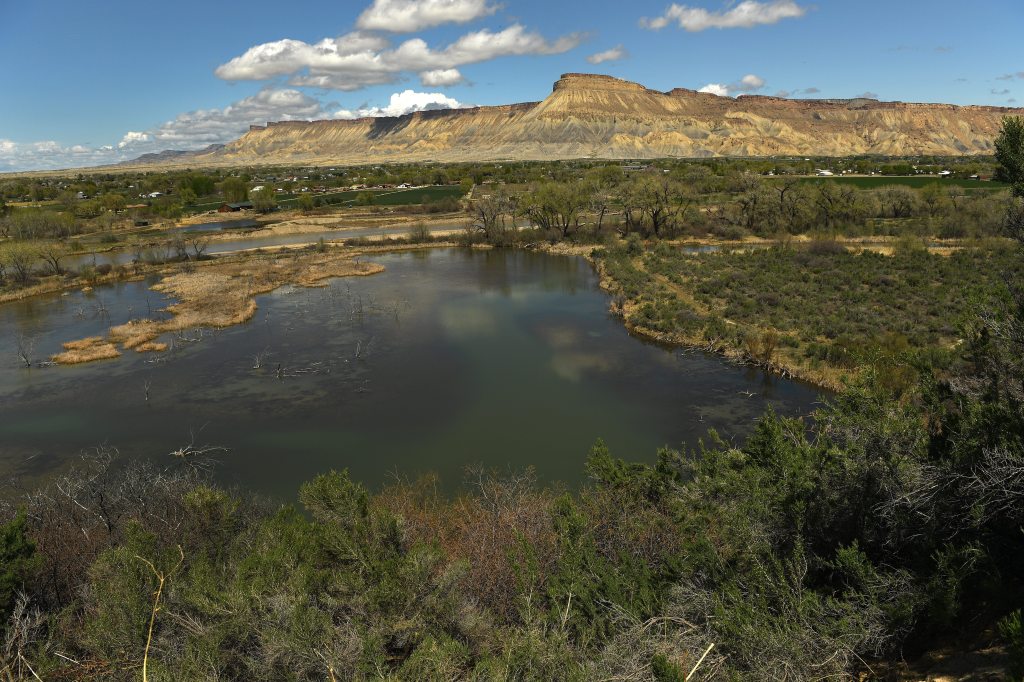Last year, Donald Trump’s Supreme Court rolled back 50 years of clean water protections. Many of Colorado’s rivers, streams and wetlands now have no clean water protection. What is the state legislature doing about it? Colorado legislators can restore reasonable protections to our state’s wetlands and streams by supporting HB24-1379 and opposing SB24-127.
All across Colorado — from Silverton and Wolf Creek to Fairplay and Aurora — unheralded and often small wetlands and streams are punching above their weight. These waterways filter out pollutants in our drinking water, providing our communities across Colorado with water that is clean and affordable.
Despite occupying a fraction of Colorado’s landscape, wetlands are key to the survival of 80% of our state’s wildlife species. Wildlife such as moose, sandhill cranes, beavers, great blue herons and Colorado’s iconic fish species rely on wetlands for survival.
They’re also carbon sinks, and release significant amounts of stored carbon back into the atmosphere when destroyed, contributing to a hotter, drier, more wildfire-prone climate.
The protections removed by Trump’s Supreme Court shielded Colorado’s waterways from being polluted, paved over and destroyed by development. The Supreme Court’s decision put already vulnerable wetlands and streams at risk of becoming endangered. Losing protections for these water sources threatens our communities, wildlife and economy.
The two competing bills being heard by Colorado lawmakers offer vastly different solutions to this issue. HB24-1379, introduced by Speaker of the Colorado House of Representatives Julie McCluskie, Representative Karen McCormick and Senator Dylan Roberts restores the protections that Colorado’s wetlands and streams lost, while SB24-127 falls short of addressing the threats to these essential waterways.
HB24-1379 protects any wetland or stream that’s not continuously flowing. That means it restores protections for the estimated two-thirds of Colorado’s streams and a significant amount of our state’s wetlands. It also accounts for the fact that the harmful impacts from mining, development and construction are compounded when multiple projects happen in the same area over the same amount of time. Overall, this bill allows for responsible development while avoiding, minimizing or mitigating environmental impacts.
On the other hand, SB24-127 would not require ANY environmental review for development in 14 of the 15 types of wetlands in Colorado. Since becoming a state, Colorado has lost more than half of its wetlands. Now is not the time for lawmakers to lessen protections for these key ecosystems. Lakes, reservoirs and flowing or seasonal streams can be impacted by development projects even if they are 1,500 feet away from them, but SB24-127 does not require environmental review for these waterways except for fens, one of the rarest types of wetland.
Another issue with SB24-127 is that it imposes a national, one-size-fits-all approach on Colorado. If this bill passes, our state would have to match our clean water protections to national ones. So, if a future president decided to enact weak protections for wetlands and streams, Colorado would have to follow suit. This would limit Colorado’s ability to safeguard against the impacts climate change has on our waterways. That is the last thing our state should be doing, yet that is what SB24-127 does.
Colorado cannot afford for our state legislature to make a mistake here. Not only do wetlands and streams support wildlife habitats and clean water, they also support local economies. Colorado’s world-renowned outdoor recreation industry supports communities across the state, generating nearly $19 billion per year and supporting over 130,000 jobs in our state. This industry, as well as the agriculture industry, relies on clean water and a steady water supply, both of which are supported by healthy wetlands and streams.
The choice is clear: McCluskie, Roberts and McCormick’s bill, HB24-1379, calls for the creation of a reasonable, pragmatic, Colorado-specific permitting program that restores five decades of clean water protections. The other bill, SB24-127, puts Colorado’s economy, our environment and our health at risk.
Kelly Nordini is CEO of Conservation Colorado, the state’s largest environmental organization.
Sign up for Sound Off to get a weekly roundup of our columns, editorials and more.
To send a letter to the editor about this article, submit online or check out our guidelines for how to submit by email or mail.
